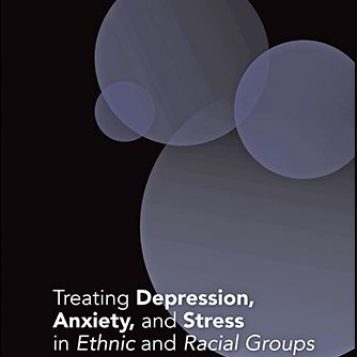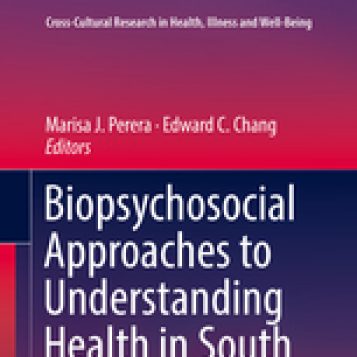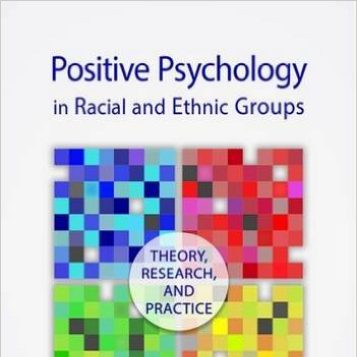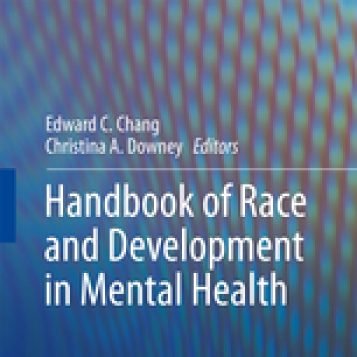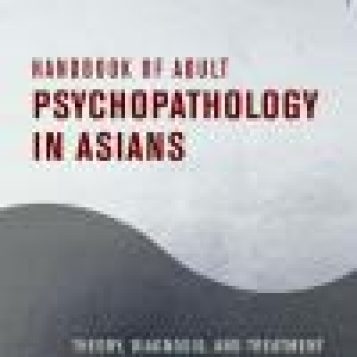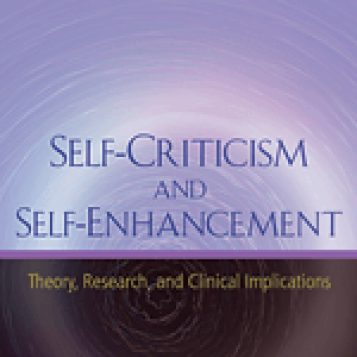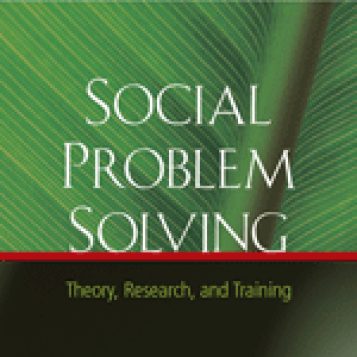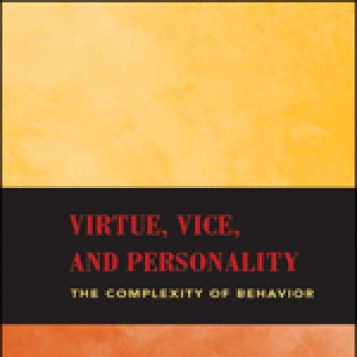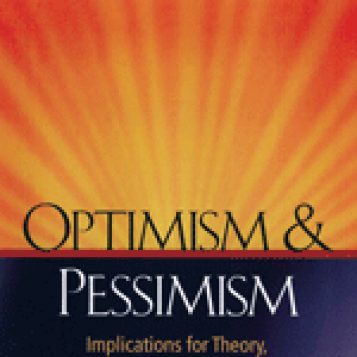Professor of Psychology
About
My current research interests involve the study of several different predictors of psychological and physical adjustment, including optimism and pessimism, perfectionism, and social problem solving. I am also interested in understanding how cultural and racial factors influence the function of these variables on outcome, and in examining stress and coping and diathesis-stress models of adjustment. Recently, I have become particularly interested in international collaborations, working with colleagues in China, Turkey, Hungary, Spain, Brazil, Germany, and Poland.
Some Recent/Forthcoming Books:
Chang, E. C., Downey, C. A., Yang, H., Zettler, I., & Muyan, M. (Eds.). (forthcoming). The international handbook of positive psychology: A global perspective on the science of positive human existence. New York: Springer.
Downey, C. A., & Chang, E. C. (Eds.). (forthcoming). Historical context, impacts, and interventions for substance use disorders among racial and ethnic groups. Washington, DC: American Psychological Association.
Hirsch, J. K., Chang, E. C., & Rabon, J. K. (Eds.). (forthcoming). A positive psychological approach to suicide: Theory, research and prevention. New York: Springer.
Chang, E. C., Downey, C. A., Hirsch, J. K., & Yu, E. A. (Eds.). (2018). Treating depression, anxiety, and stress in ethnic and racial groups: Cognitive behavioral approaches. Washington, DC: American Psychological Association.
Perera, M. J., & Chang, E. C. (Eds.). (2018). Biopsychosocial approaches to understanding health in South Asian Americans. New York: Springer.
Chang, E. C., Downey, C. A., Hirsch, J. K., & Lin, N. J. (Eds.). (2016). Positive psychology in racial and ethnic groups: Theory, research, and practice. Washington, DC: American Psychological Association.
Some Recent/In Press Publications:
Chang, E. C. (2018). Relationship between loneliness and symptoms of anxiety and depression in African American men and women: Evidence for gender as a moderator. Personality and Individual Differences, 120(1), 138-143.
Chang, E. C., Chang, O. D., Martos, T., & Sallay, V. (2018) Loss of hope and suicide risk in Hungarian college students: How the presence of perceived family support makes a positive difference. The Family Journal, 26(1), 119-126.
Chang, E. C., Lee, J., Morris, L. E., Lucas, A. G., Chang, O. D., & Hirsch, J. K. (in press). A preliminary examination of negative life events and sexual assault victimization as predictors of psychological functioning in female college students: Is one more important than the other? Journal of Interpersonal Violence.
Chang, E. C., Chang O. D., Martos, T., Sallay, V., Li, X., Lucas, A. G., & Lee, J. (2018). Does optimism weaken the negative effects of being lonely on suicide risk? Death Studies, 42, 63-68.
Chang, E. C., Yu, E. A., Kahle, E. R., Du, Y., Chang, O. D., Jilani, Z., Yu, T., & Hirsch, J. K. (2018). The relationship between domestic partner violence and suicidal behaviors in an adult community sample: Examining hope agency and pathways as protective factors. Violence Against Women, 24, 1399-1412.
Chang, E. C., Lee, J., Wright, K. M., Najarian, A. S.-M., Yu, T., Chang, O. D., & Hirsch, J. K. (in press). Examining sexual assault victimization and loneliness as risk factors associated with non-lethal self-harm behaviors in female college students: Is it important to control for concomitant suicidal behaviors (and vice versa)? Journal of Interpersonal Violence.
Chang, E. C., Lucas, A. G., Chang, O. D., Duan, T., Zhou, Z., Yang, J. Z., Morris, L. E., Angoff, H. D., & Hirsch, J. K. (in press). Presence of trauma and suicide risk: Personal control as a moderator. Death Studies.
Chang, E. C., Yu, T., Lee, J., Kamble, S. V., Batterbee, C. N.-H., Stam, K. R., Chang, O. D., Najarian, A. S.-M., & Wright, K. M. (in press). Understanding the association between spirituality, religiosity, and feelings of happiness and sadness among HIV-positive Indian adults: Examining stress-related growth as a mediator. Journal of Religion and Health.
Lee, J., Chang, E. C., Lucas, A. G., & Hirsch, J. K. (in press). Academic motivation and psychological needs as predictors of suicidal risk. Journal of College Counseling.
Yu, E. A., Chang, E. C., Yu, T., Bennett, S. C., & Fowler, E. E. (in press). Examining gender differences in the roles of meaning in life and interpersonal expectancies in depressive symptoms. Gender Issues.
Muyan, M., & Chang, E. C. (in press). Hope as a mediator of the link between intimate partner violence and suicidal risk in Turkish women: Further evidence for the role of hope agency. Journal of Interpersonal Violence.
Walker, K. L., Hirsch, J. K., Chang, E. C., & Jeglic, E. L. (in press). Non-suicidal self-injury and suicidal behavior in a diverse sample: The moderating role of social problem solving ability. International Journal of Mental Health and Addiction.
Hirsch, J. K., Rabon, J. K., Reynolds, E. E., Barton, A. L., & Chang, E. C. (in press). Perceived stress and suicidal behaviors in college students: Conditional indirect effects of depressive symptoms and mental health stigma. Stigma and Health.
Chang, E. C. (2017). Perfectionism and loneliness as predictors of depressive and anxious symptoms in African American adults: Further evidence for a top-down additive model. Cognitive Therapy and Research, 41, 720-729.
Chang, E. C. (2017). Applying the broaden-and-build model of positive emotions to social problem solving: Does feeling good (vs. feeling bad) influence problem orientation, problem-solving skills, or both? Journal of Social and Clinical Psychology, 36, 380-395.
Chang, E. C. (2017). Hope and hopelessness as predictors of suicide ideation in Hungarian college students. Death Studies, 41, 455-460.
Chang, E. C., Díaz, L., Lucas, A. G., Lee, J., Powell, N. J., Kafelghazal, S., Chartier, S. J., Morris, L. E., Marshall-Broaden, T. M., Hirsch, J. K., & Jeglic, E. L. (2017). Ethnic identity and loneliness in predicting suicide risk in Latino college students. Hispanic Journal of Behavioral Sciences, 39, 470-485.
Chang, E. C., Yang, H., & Yu, T. (2017). Perceived interpersonal sources of life satisfaction in Chinese and American students: Cultural or gender differences? The Journal of Positive Psychology, 12, 414-424.
Chang, E. C., Chang, O. D., Martos, T., & Sallay, V. (2017). Future orientation and suicide risk in Hungarian college students: Burdensomeness and belongingness as mediators. Death Studies, 41, 284-290.
Chang, E. C., Jilani, Z., Yu, T., Lin, J., Muyan, M., & Hirsch, J. K. (2017). Relation between sexual assault and negative affective conditions in female college students: Does loss of hope account for the association? Journal of Interpersonal Violence, 32, 1249-1266.
Chang, E. C., Najarian, A. S.-M., Chang, O. D., Hill, G. M., & Lee, J. (2017). Athletic competence as a central facet of sport orientation among collegiate athletes. Journal of Sport Behavior, 40, 269-277.
Chang, E. C., Chang, O. D., Martos, T., Sallay, V., Najarian, A. S.-M., & Lee, J. (2017). Validity of the Frequency of Suicidal Ideation Inventory in Hungarian adults. Death Studies, 41, 236-240.
Chang, E. C., Martos, T., Sallay, V., Chang, O. D., Wright, K. M., Najarian, A. S.-M., & Lee, J. (2017). Examining optimism and hope as protective factors of suicide risk in Hungarian college students: Is risk highest for those lacking positive psychological protection? Cognitive Therapy and Research, 41, 278-288.
Chang, E. C., Chang, O. D., Martos, T., Sallay, V., Lee, J., Stam, K. R., Batterbee, C. N.-H., & Yu, T. (2017). Family support as a moderator of the relationship between loneliness and suicide risk in college students: Having a supportive family matters! The Family Journal, 25, 257-263.
Chang, E. C., Yu, T., Najarian, A. S.-M., Wright, K. M., Chen, W., Chang, O. D., Du, Y., & Hirsch, J. K. (2017). Understanding the association between negative life events and suicidal risk in college students: Examining self-compassion as a potential mediator. Journal of Clinical Psychology, 73, 745-755.
Chang, E. C., Wan, L., Li, P., Guo, Y., He, H., Gu, Y., Wang, Y. J., Li, X., Zhang, Z., Sun, Y., Batterbee, C. N.-H., Chang, O. D., Lucas, A. G., & Hirsch, J. K. (2017). Loneliness and suicidal risk in young adults: Does believing in a changeable future help minimize suicidal risk among the lonely? The Journal of Psychology: Interdisciplinary and Applied, 151, 453-463.
Walker, K. L., Chang, E. C., Hirsch, J. K. (2017). Neuroticism and suicidal behavior: Conditional indirect effects of social problem solving and hopelessness. International Journal of Mental Health and Addiction, 15, 80-89.
Chang, E. C., Yu, T., Jilani, Z., Chang, O. D., Du, Y., Hirsch, J. K., & Kamble, S. (2016). Happiness among HIV-positive Indian adults: Examining stress-related growth and coping as predictors of positive psychological adjustment. Asian Journal of Psychiatry, 24, 147-148.
Chang, E. C., & Chang, O. D. (2016). Development of the Frequency of Suicidal Ideation Inventory: Evidence for the validity and reliability of a brief measure of suicidal ideation frequency in a college student population. Cognitive Therapy and Research, 40, 549-556.
Chang, E. C., Yu, E. A., Yu, T., Kahle, E. R., Hernandez, V., Kim, J. M., Jeglic, E. L., & Hirsch, J. K. (2016). Ethnic variables and negative life events as predictors of depressive symptoms and suicidal behaviors in Latino college students: On the centrality of receptivo a los démas. Hispanic Journal of Behavioral Sciences, 38, 206-221.
Chang, E. C., & Yang, H. (2016). Personal and family growth initiative as predictors of study engagement in Chinese and American college students: Is there any evidence for group differences? Personality and Individual Differences, 102, 186-189.
Chang, E. C., Yu, T., Chang, O. D., & Jilani, Z. (2016). Evaluative concerns and personal standards perfectionism as predictors of body dissatisfaction in Asian and European American females: Does ethnicity matter? Journal of American College Health, 64, 580-584.
Chang, E. C., Jilani, Z., Fowler, E. E., Yu, T., Chia, S. W., Yu, E. A., McCabe, H. K., & Hirsch, J. K. (2016). The relationship between multidimensional spirituality and depressive symptoms in college students: Examining hope agency and pathways as potential mediators. The Journal of Positive Psychology, 11, 189-198.
Chang, E. C., Yu, T., Chang, O. D., & Hirsch, J. K. (2016). Hope and trauma: Examining a diathesis-stress model in predicting depressive and anxious symptoms in students. Personality and Individual Differences, 96, 52-54.
Yu, E. A., Chang, E. C., & Kim, J. H. J. (2016). Asian American culturally relevant values as predictors of meaning in life in Asian and European American college students: Evidence for cultural differences? Asian American Journal of Psychology, 7, 159-166.
Muyan, M., Chang, E. C., Jilani, Z., Yu, T., Lin, J., & Hirsch, J. K. (2016). Loneliness and negative affective conditions in adults: Is there any room for hope in predicting anxiety and depressive symptoms? The Journal of Psychology: Interdisciplinary and Applied, 150, 333-341.
Yang, H., & Chang, E. C. (2016). Is the PGIS-II redundant with the Hope Scale?: Evidence for the utility of the PGIS-II in predicting psychological adjustment in adults. Personality and Individual Differences, 94, 124-129.
Yu, E. A., & Chang, E. C. (2016). Optimism/pessimism and future orientation as predictors of suicidal ideation: Are there ethnic differences? Cultural Diversity and Ethnic Minority Psychology, 22, 572-579.
Liu, P. P., Rollock, D., Chang, E. C., Leong, F. T. L., & Zamboanga, B. L. (2016). Big 5 personality and subjective well-being in Asian Americans: Testing optimism and pessimism as mediators. Asian American Journal of Psychology, 7, 274-286
Area

